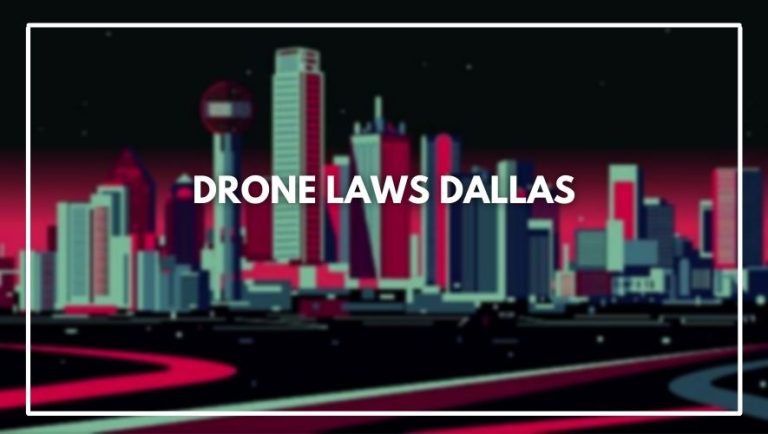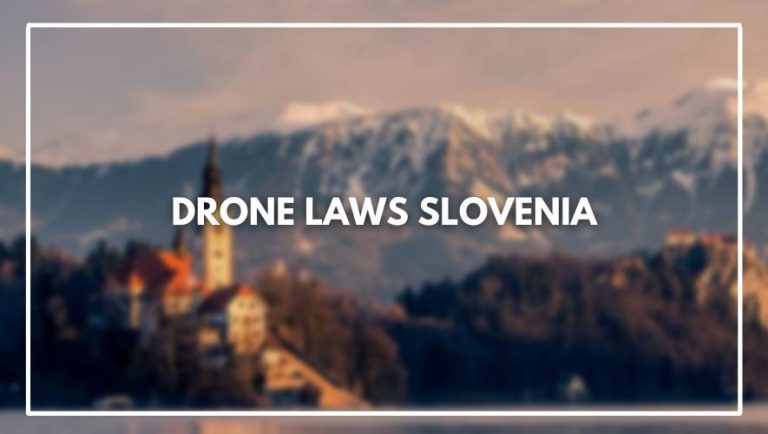Drone Laws In Lebanon The use of drones in Lebanon has become a serious concern for many people. There have been many negative reports about drone-related crashes. Many people have lost their lives because of the drone’s unfortunate accidents.
So you’re in the market for a drone? That’s great news! Before you think of buying the first drone that comes your way, there are certain things you need to look at.
One of the most important factors when choosing a drone is the regulation regarding drones. Why? Because if flying your hands isn’t illegal, it may just lead to a misunderstanding with an angry neighbor and could lead to legal trouble.
drone Laws Lebanon

Make Sure To Fly A Maximum Of 50m
The most important rule to follow is that you should not fly above 50 meters. This is the maximum altitude allowed for private use, but commercial flights have a higher limit of 100 meters. Both rules are set out by Lebanon’s Civil Aviation Authority (CAA), which regulates drone activity in Lebanon.
Any Flight Above 100 Meters Requires Permission
According to the Civil Aviation Law, any flight above 100 meters requires permission from the Ministry of Defense. All flights must be notified 30 days before takeoff, and a notification should include flight details such as:
- Duration of flight
- Location where it will take place (plus contact information if there’s an emergency)
- Purpose of flight (i.e., whether it’s for commercial purposes) and altitude
Staying In Uncontrolled Airspace Is Allowed
You can stay in uncontrolled airspace, which is any airspace that isn’t near an airport. Staying in this kind of air space doesn’t require you to file a flight plan or get permission from anyone.
You can be flying your drone and suddenly find yourself in controlled airspace—it’s marked by warning signs on the ground and shown on maps as well as indicated with red-and-white vertical stripes.
Do Not Operate In Restricted Airspace
Do not operate in restricted airspace, e.g airports and military areas. Restricted areas are areas where the flight of your drone might interfere with the operation of manned aircraft. Restricted areas include, but are not limited to airports and military bases.
Flying At Night And Over Crowds Is Forbidden
According to the [Lebanese Ministry of Public Works], you should always fly your drone in daylight, and never over crowds of people. You’re also not allowed to fly over another person’s property without their permission, or if you can’t see your drone at all times (for example, if it has crashed into a tree).
Drone Flights Should Be Done Only For Private Use
Drones are considered to be aircraft and as such, their flights are subject to the same rules and regulations as any other aircraft. Drones must be operated in accordance with the Civil Aviation Regulations and all applicable laws.
The use of drones for commercial purposes is prohibited without a permit from the Ministry of Finance. Operators must ensure that they are not endangering anyone’s safety or privacy by flying their drone over public spaces or private property without permission from those who own or control that land or space.
Flying Near People And Buildings Is Forbidden
- Flying near people and buildings is forbidden.
- Drones must be flown at least 50 m away from people and buildings.
- Drones must be flown at least 30 m away from people and buildings when flying FPV.
- Drones must be flown at least 50 m away from people and buildings when flying FPV
Do Not Interfere With Any Aircraft Movements
You can’t fly your drone near an airport or military base. You also need to avoid flying in bad weather, and you should never fly your drone near people or buildings (especially hospitals and prisons).
Drone Flights Must Be Conducted In Clear Weather Conditions
Weather conditions can be a safety concern and may also compromise your flight. You must have clear weather conditions in order to safely fly your drone. If you are not able to see the drone clearly, do not fly it.
High winds or heavy rain will cause the drone to move around unpredictably, which could result in injury or damage if it hits something or someone on the ground.
In addition, if you are using a FPV system (First Person View), high winds could also affect how accurately you can control the direction of your video feed – making it difficult for you to safely fly around obstacles such as trees and buildings while still being able to see what’s happening on screen.
Therefore, we recommend that all drone pilots avoid flying in windy conditions unless they have experience flying with an FPV set-up under those circumstances already and know how best to handle their equipment under such conditions
The Pilot Must Be Able To Maintain Sight
The pilot must be able to maintain sight of the drone all the time during its flight duration. The use of FPV (First Person View) devices is allowed as long as an observer is present with the pilot, who will take control of the drone in case of any eventuality.
In this way, if anything happens, such as a crash or loss of control while flying FPV, then there will be someone else on hand to take over and avoid any further damage or injury caused by not being able to see where they’re going.
The law also states that no one under 16 years old can operate drones in Lebanon because they are not considered mature enough yet – although there’s nothing stopping them learning how!
Respect The Rules When Flying You Drone
The drones are becoming increasingly popular and more and more people are flying them. Drones have become a means of amusement, as well as a means to do some work or learn something.
However, there are rules that must be respected when flying drones in Lebanon:
- The operator must be at least 16 years old and hold a valid Lebanese driving license or passport.
- The drone must be registered with the Civil Aviation Authority (CAA) and its owner’s name must be indicated on the sticker placed at the bottom of it.
- It’s also recommended that you include your mobile number on this sticker so you can be contacted if needed by people who find your drone in case of an emergency situation (like an accident).
- Failure to respect these rules could result in fines ranging between US $1,000-$5,000 depending on where you’re flying it from/to (i.e., whether it’s within Beirut city limits or outside).
- For example: If someone was flying his drone from Chuff Mountains near Zouk Mikael village toward Beirut International Airport without following CAA regulations regarding unmanned aircraft activity within 5 kilometers radius around airports – he would face one year imprisonment maximum along with up to US $10 million fine!
How To Register Drones In Lebanon

Where To Register Drones In Lebanon
To register your drone, you must visit the Directorate of Civil Aviation in Beirut. Drones must be registered with this agency as a safety precaution, and failure to do so may result in fines or confiscation of your drone.
The registration office is located at Beirut International Airport. Registration is free of charge, but keep in mind that the onus falls on you to ensure that your number remains valid for as long as you own your drone.
What Documents Are Required To Register Drones In Lebanon
You will need to provide the following documents:
- ID
- Insurance
- Proof of ownership (the original sales contract or receipt)
- Drone registration certificate
How Long Does It Take To Register Drones In Lebanon
- How long does it take to register drones in Lebanon?
Your application will be processed within 10 working days. If you have any questions about the status of your application, please contact [email protected]
- What are the fees payable?
An annual fee of $150 USD is payable upon registration and every year thereafter (1st July) until expiry or cancellation.
This fee covers administrative costs associated with managing and administering drone licensing requirements in line with international best practice standards, as well as community safety awareness initiatives; we also provide a number of free services related to education and public awareness campaigns for general aviation enthusiasts or those who may be looking at purchasing their first drone/UAV system in Lebanon but haven’t yet decided which type it will be best suited too!
Can You Register Drones In Lebanon Remotely?
Yes. You can register your drone in Lebanon remotely and pick it up on the same day if you register in Beirut or Byblos.
If you choose to register remotely, please make sure that the device’s serial number (usually located on the underside of the drone) has been filled out, and that a copy of your passport is uploaded with your application.
Drones Must Be Registered Prior To Use.
All drones in Lebanon must be registered.
You can only operate a drone if you are over 16 years old.
There are two ways to register your drone: online or by mail. You do not need to have a Lebanese address to register your drone, but contact details must be provided so the CAA can contact you about any problems with your application or registration details (e.g., if these change).
Drones cannot be operated until they have been successfully registered with the Lebanese CAA
Are Drones Allowed In Lebanon
It Is Legal To Fly A Drone In Lebanon.
It is legal to fly a drone in Lebanon.
Although it’s technically not required, it’s recommended that you register your drone with the Lebanese Directorate of General Security (DGS), which is the country’s official security agency.
Flying A Drone In Lebanon Is Subject To Some Restrictions.
Flying a drone in Lebanon is subject to some restrictions.
Drones cannot fly over crowds, private property or national parks. Additionally, drones can’t fly at night, over military facilities and airports or into restricted areas like government buildings.
The maximum height for flying a drone is 150 meters (492 feet) above sea level; if you go higher than this altitude, your drone will be shot down by the military.
Drones are also not allowed to fly within 2 kilometers (1.24 miles) of an airport unless they have permission from the Civil Aviation Authority; if you’re caught doing so without permission then your drone could be confiscated and you may be fined up to $10,000.
Make Sure You Understand The Rules.
If you’re planning to fly your drone in Lebanon, make sure you understand the rules. There are several areas where a permit is required to fly, and it’s important that you avoid those areas. In addition, if you’re flying your drone above 150 meters (492 feet), then a license is required by law.
You should also keep in mind that airports—including Rafic Hariri International Airport and Beirut Rafic Hariri International Airport—and military bases are off limits even if they aren’t specifically listed on maps as restricted areas for drones. If there’s any doubt about whether or not an area is restricted for drones, err on the side of caution and don’t fly there!
As always with flight regulations, check with authorities before taking off so that you can stay within legal boundaries while operating your remote-controlled device.
Frequently Asked Question (drone Laws Lebanon)
Is There A Drone Law In Lebanon?
Yes, there is a drone law in Lebanon. The Lebanese Civil Aviation Authority issued a drone law, which is available on the Civil Aviation Authority website.
As a general rule: drones are not allowed to fly above 150 meters (492 feet) above ground level. They cannot be flown within 5 kilometers of an airport or military base without prior authorization from the Civil Aviation Authority (CAA).
What Are The Requirements Of The Operator?
In order to operate a drone, you must be at least 16 years old and have a valid ID. You must also have a driver’s license and medical certificate. You can then obtain the required license from the Directorate General of Civil Aviation (DGCA), which has offices in Beirut and Tripoli.
The DGCA provides two different types of licenses: one for recreational use and another for commercial use. For example, if you want to take photos with your drone during your vacation in Lebanon, then all you need is an ordinary recreational pilot’s license issued by DGCA and approved by them (or another country).
If however, you want to earn money through taking aerial photographs or filming while using drones in Lebanon, then this would require getting an additional permit from them (or any other country).
Is It Mandatory To Obtain The Permission Of The Civil Aviation Authority Of Lebanon?
Yes, it is mandatory to obtain the permission of the Civil Aviation Authority of Lebanon before flying a drone. You can apply for a permit here and read more about it here.
Can I Use My Drone For Commercial Purpose In Lebanon?
Yes, but you will need to get a permission from the Civil Aviation Authority of Lebanon. You also need to register your drone and pay taxes on it.
As for getting insured, if your drone is considered for commercial use (i.e., making money from using it), then make sure that you have a proper insurance policy in place before flying anywhere. This insurance should cover any damage caused by the use of drones or other unmanned aircrafts when operating them commercially.
The same goes for piloting licenses and certificates: if you want to use your drone commercially in Lebanon, then make sure that all pilots are licensed appropriately so as not to cause any problems later on down the road!
Conclusion
Drones are allowed in Lebanon, but there are many restrictions on their use. It is important to be careful when flying drones, as there are a lot of potential risks involved.
Drones cannot be flown in restricted areas such as airports and military bases. Additionally, they are not allowed in certain places such as national parks or near an airport or military base.





![Drone laws in Alaska [March 2023] [Rules & How to Register]](https://discoveryoftech.com/wp-content/uploads/2022/08/drones-44-768x434.jpg)
![Drone laws Melbourne [March 2023] [Rules & How to Register]](https://discoveryoftech.com/wp-content/uploads/2022/05/drone-2022-08-20T000358.284-768x434.jpg)